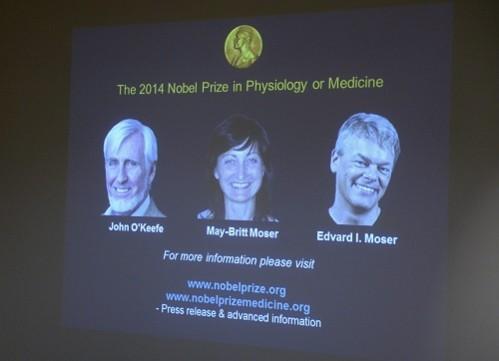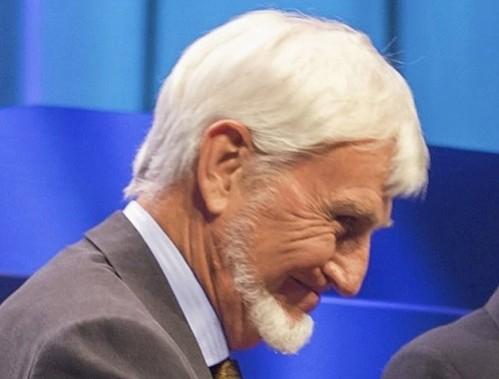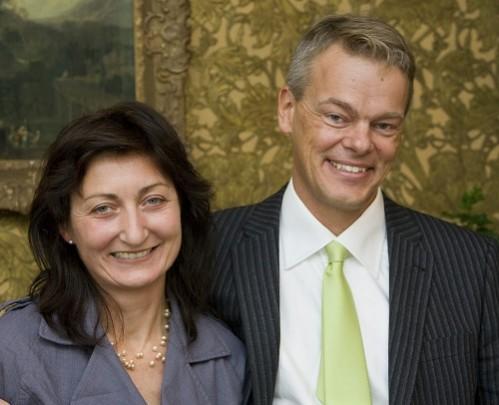
Three scientists shared the 2014 Nobel Prize in Physiology or Medicine, for discovering the "inner GPS" system in the brain which helps it to identify places and navigate.
The Nobel Assembly at Karolinska Institutet on Monday announced the decision to award one half of the total prize money - 8 million Swedish crowns ($1.1 million) - to American-British scientist John O´Keefe and the other half jointly to Norwegian scientist couple May-Britt Moser and Edvard I Moser, for discovering the "place" and "grid" cells in the brain and for explaining how they worked, according to Reuters.

O'Keefe, professor and director of the Sainsbury Wellcome Centre in Neural Circuits and Behaviour at University College London, was credited with discovering place cells back in 1971. Through experiments conducted on rats, he found that specific cells in the hippocampus created an "inner map of the environment" and helped the brain store memory of an environment.

In 2005, May-Britt, who was director of the Kavli Institute for Systems Neuroscience in Trondheim, identified certain specific patterns in entorhinal cortex of the brain, which led to the establishment of a coordinate system that facilitated spatial navigation and also formed circuits with place cells in the hippocampus.
"This circuitry constitutes a comprehensive positioning system, an inner GPS, in the brain," stated the Nobel Assembly.
The discovery of the positioning system is expected to help understand underlying mechanism of diseases like Alzheimer's.
"The discoveries of John O´Keefe, May-Britt Moser and Edvard Moser have solved a problem that has occupied philosophers and scientists for centuries - how does the brain create a map of the space surrounding us and how can we navigate our way through a complex environment?" the award-giving body pointed out while announcing the awards.
Last year, American scientists James E Rothman, Randy W Schekman and German scientist Thomas C Südhof had shared the honour for explaining how machinery regulating vesicle traffic - the most important transport system in our cells - worked.













